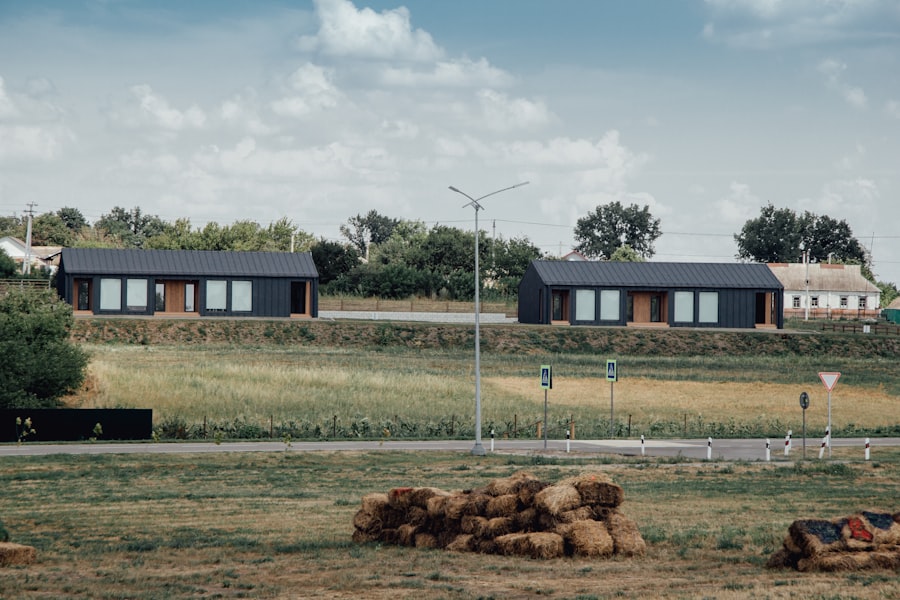Mobile homes with land included offer a unique blend of affordability and flexibility that appeals to a wide range of buyers. One of the most significant advantages is the cost-effectiveness of owning both a home and a parcel of land. In many regions, purchasing a mobile home with land can be significantly less expensive than traditional site-built homes.
This affordability allows families and individuals to invest in property without the burden of overwhelming mortgage payments. Additionally, owning land provides a sense of permanence and stability that renting does not offer. Homeowners can customize their space, create gardens, or even expand their living area without the constraints often imposed by rental agreements.
Another compelling benefit is the potential for increased privacy and space. Mobile homes are often situated on larger plots of land compared to traditional homes in urban settings, allowing for greater separation from neighbors. This can be particularly appealing for those who value outdoor living or have pets that require room to roam.
Furthermore, owning land can provide opportunities for recreational activities such as gardening, outdoor entertaining, or simply enjoying nature. The combination of a mobile home and land creates a lifestyle that emphasizes both comfort and connection to the environment, making it an attractive option for many.
Key Takeaways
- Mobile homes with land offer unique benefits like ownership of both the home and the property.
- Key factors to consider include location, zoning laws, and financing options.
- Financing a mobile home with land involves specific loan types and credit considerations.
- Proper maintenance and understanding legal requirements are essential for long-term value.
- The lifestyle and community aspects of mobile home living can provide a supportive and affordable environment.
Factors to Consider when Purchasing a Mobile Home with Land
When considering the purchase of a mobile home with land, several critical factors must be taken into account to ensure a wise investment. First and foremost is the location of the property. Proximity to essential services such as schools, healthcare facilities, and shopping centers can significantly impact daily life.
Additionally, the quality of local schools and the overall safety of the neighborhood are paramount considerations for families. Buyers should also assess the community’s amenities, such as parks, recreational facilities, and social opportunities, which can enhance their living experience. Another vital factor is the condition of both the mobile home and the land itself.
Prospective buyers should conduct thorough inspections to identify any potential issues that may require costly repairs or renovations. This includes checking for structural integrity, plumbing and electrical systems, and any signs of pest infestations. The land should also be evaluated for its suitability for various uses, including drainage capabilities and zoning restrictions.
Understanding these elements can help buyers make informed decisions and avoid unexpected expenses down the line.
The Process of Financing a Mobile Home with Land

Financing a mobile home with land can be more complex than securing a traditional mortgage for a site-built home. Many lenders treat mobile homes as personal property rather than real estate, which can affect loan terms and interest rates. Buyers should explore various financing options, including personal loans, chattel loans, and traditional mortgages that cover both the mobile home and the land.
Each option has its pros and cons, so it is essential to understand how they align with individual financial situations. Additionally, buyers should be prepared to provide documentation that demonstrates their creditworthiness. This may include income verification, credit scores, and details about existing debts.
Some lenders may require a larger down payment for mobile homes compared to conventional homes due to perceived risks associated with mobile home ownership. It is advisable to shop around for lenders who specialize in mobile home financing, as they may offer more favorable terms or have specific programs designed for this type of purchase.
Finding the Right Location for Your Mobile Home
| Criteria | Considerations | Impact on Mobile Home Living | Example Metrics |
|---|---|---|---|
| Climate | Temperature range, humidity, seasonal weather patterns | Affects comfort, energy costs, and maintenance needs | Average annual temperature: 55-75°F; Annual rainfall: 20-40 inches |
| Proximity to Amenities | Distance to grocery stores, hospitals, schools, and public transport | Convenience and quality of life | Within 5 miles of essential services |
| Land Cost and Availability | Price per acre, zoning laws, land availability | Feasibility of purchase and legal compliance | Land cost: 1,000-5,000 per acre; Zoning: Residential Mobile Home Allowed |
| Community and Safety | Crime rates, neighborhood demographics, community rules | Security and social environment | Crime rate: Low (below national average); Community size: 50-200 homes |
| Utilities and Infrastructure | Access to water, electricity, sewage, internet | Essential for daily living and comfort | Utility hookup availability: 100%; Internet speed: 50 Mbps or higher |
| Natural Hazards | Flood zones, earthquake risk, tornado frequency | Safety and insurance costs | Flood zone: Low risk; Earthquake risk: Minimal |
| Resale Value | Market trends, demand for mobile homes in area | Investment potential | Annual appreciation rate: 1-3% |
Selecting the right location for a mobile home is crucial to ensuring long-term satisfaction with the investment. Factors such as accessibility to major highways, public transportation options, and local amenities play a significant role in determining the desirability of a location. Buyers should consider how far they are willing to commute for work or school and whether the area offers convenient access to essential services like grocery stores and healthcare providers.
In addition to practical considerations, potential buyers should also evaluate the aesthetic appeal of the location. Scenic views, natural surroundings, and community atmosphere can greatly enhance the living experience. Some may prefer rural settings that offer tranquility and space, while others might seek out suburban areas with vibrant community life.
Engaging with local residents and visiting neighborhoods at different times of day can provide valuable insights into what life would be like in that area.
Navigating Zoning and Legal Considerations for Mobile Homes with Land
Understanding zoning laws and legal considerations is essential when purchasing a mobile home with land. Zoning regulations dictate how land can be used and may impose restrictions on mobile home placement or modifications. Buyers should research local zoning ordinances to ensure that their intended use aligns with regulations.
For instance, some areas may have specific requirements regarding minimum lot sizes or setbacks from property lines. Additionally, it is crucial to verify that the mobile home complies with local building codes and safety standards. This may involve obtaining permits for installation or renovations.
Buyers should also be aware of any homeowners’ association (HOA) rules if applicable, as these can impose additional restrictions on property use or appearance. Engaging with local authorities or real estate professionals who understand these regulations can help navigate this complex landscape effectively.
Maintenance and Upkeep of Mobile Homes with Land

Maintaining a mobile home on its own land requires diligence and attention to detail to ensure longevity and comfort. Regular upkeep includes routine inspections of both the home and the surrounding property. This involves checking for leaks in plumbing systems, ensuring that electrical systems are functioning correctly, and maintaining heating and cooling systems to promote energy efficiency.
Additionally, exterior maintenance such as painting, siding repairs, and roof inspections are essential to protect against weather-related damage. Land maintenance is equally important; this includes managing landscaping, drainage systems, and any outdoor structures such as decks or sheds. Regular lawn care not only enhances curb appeal but also prevents issues related to overgrowth or pest infestations.
Homeowners should also consider seasonal maintenance tasks such as winterizing plumbing systems or preparing gardens for planting in spring. Establishing a maintenance schedule can help ensure that both the mobile home and land remain in good condition over time.
Potential Resale Value of Mobile Homes with Land
The resale value of mobile homes with land can vary significantly based on several factors including location, market demand, and overall condition of both the home and property. Generally speaking, mobile homes situated on owned land tend to appreciate more than those located in mobile home parks where land is leased. This appreciation is often influenced by local real estate trends; areas experiencing growth or revitalization may see higher demand for mobile homes with land.
To maximize resale value, homeowners should invest in regular maintenance and updates that enhance both functionality and aesthetics. Upgrades such as modern appliances, energy-efficient windows, or improved landscaping can make a property more appealing to potential buyers. Additionally, understanding market trends in the area can help sellers price their homes competitively while still achieving a favorable return on investment.
Exploring the Community and Lifestyle of Mobile Home Living
Living in a mobile home community offers a unique lifestyle characterized by camaraderie and shared experiences among residents. Many communities foster a sense of belonging through organized events such as potlucks, holiday celebrations, or recreational activities like swimming or gardening clubs. This social aspect can be particularly beneficial for families or retirees seeking connection within their neighborhoods.
Moreover, mobile home living often promotes a simpler lifestyle that emphasizes minimalism and sustainability. Many residents find joy in downsizing their possessions and focusing on experiences rather than material goods. The affordability associated with mobile homes allows individuals to allocate resources toward travel, hobbies, or other interests that enrich their lives.
As such, mobile home living can provide not only financial benefits but also an enhanced quality of life through community engagement and personal fulfillment.



